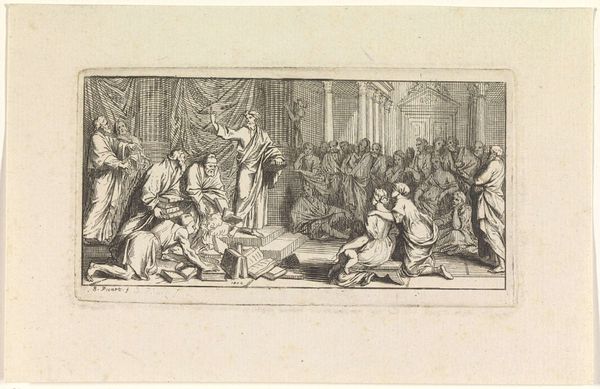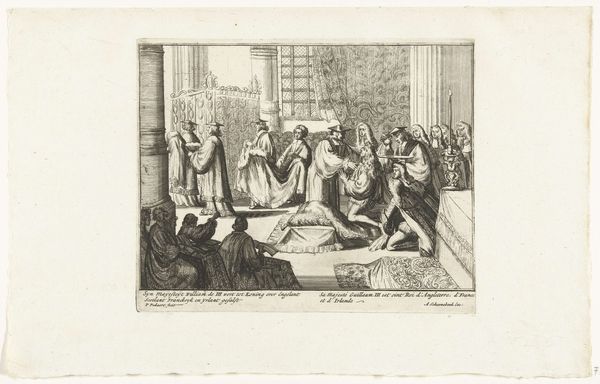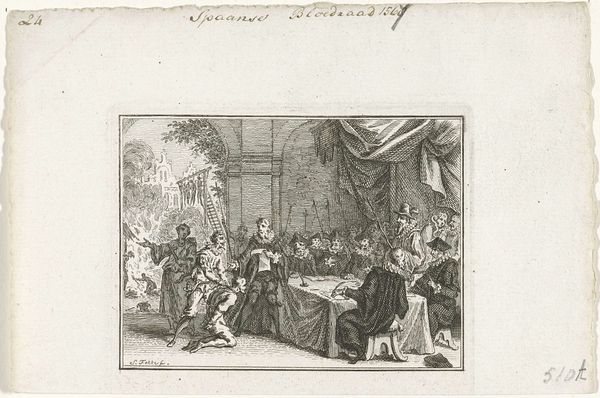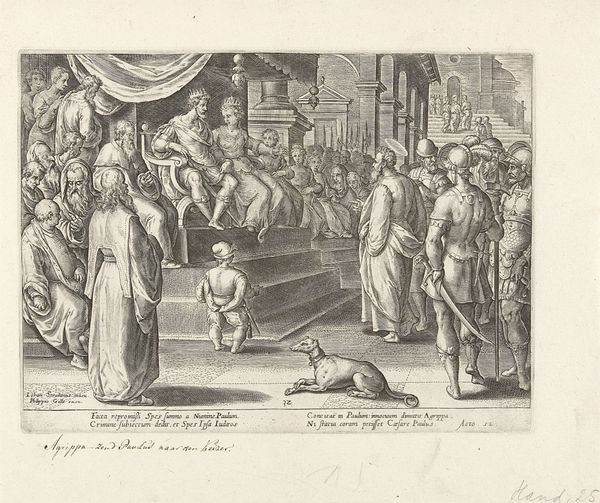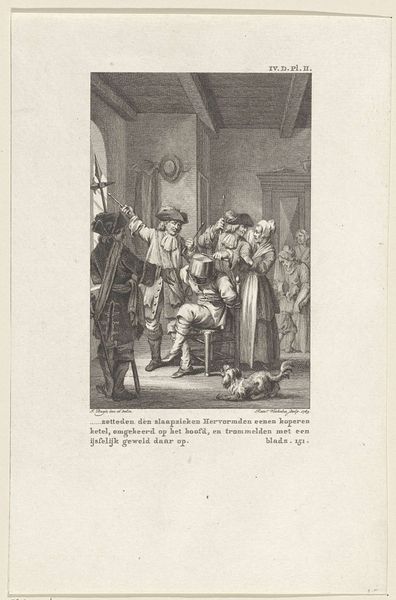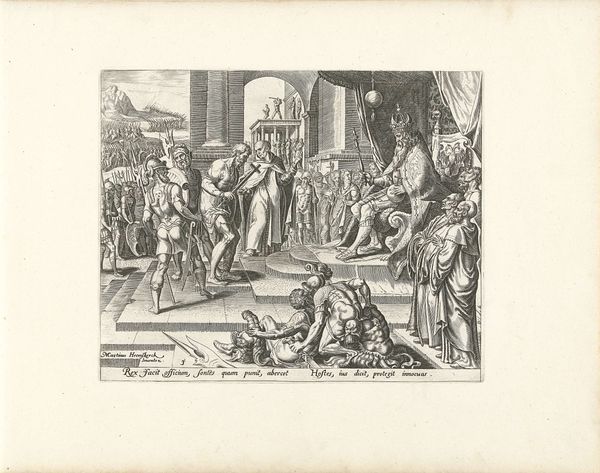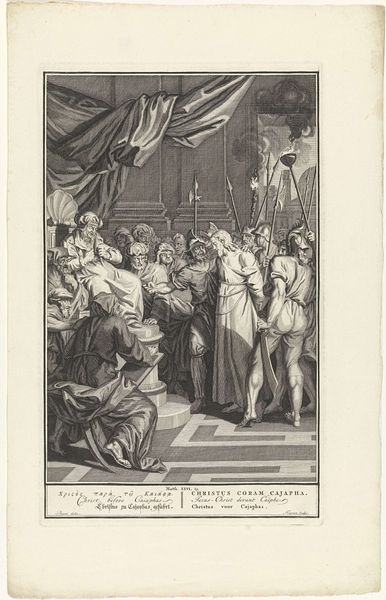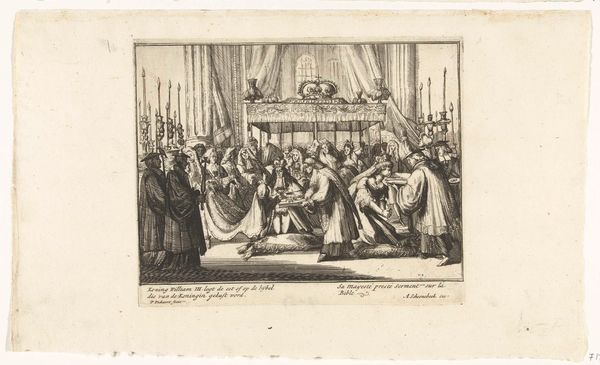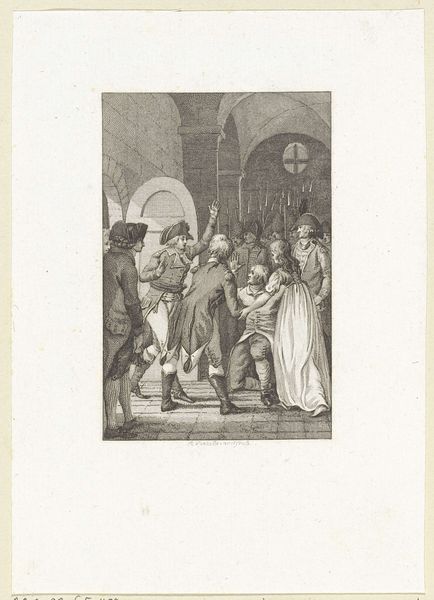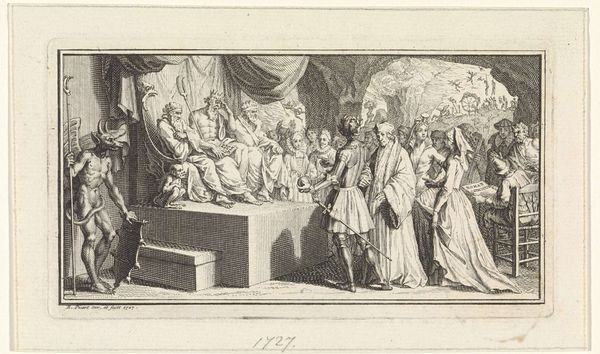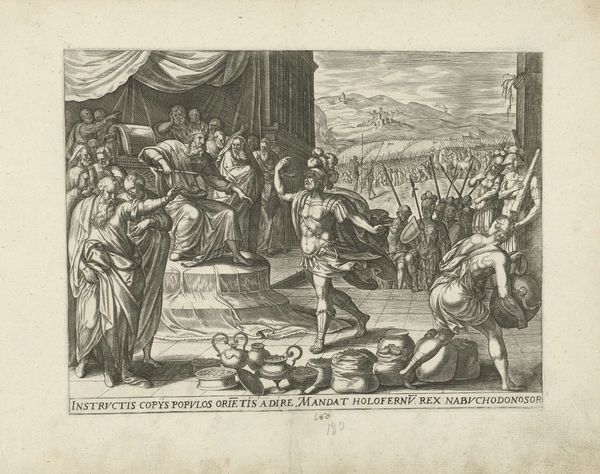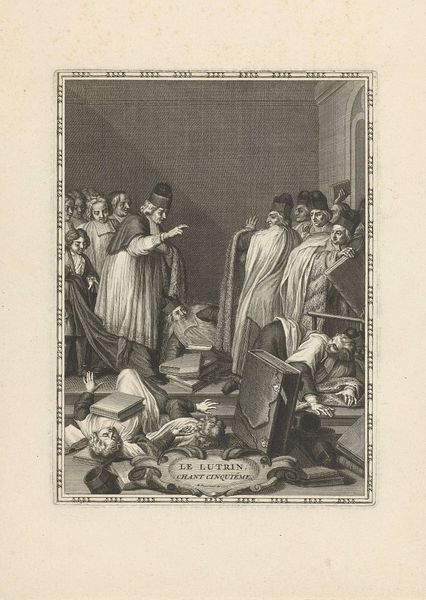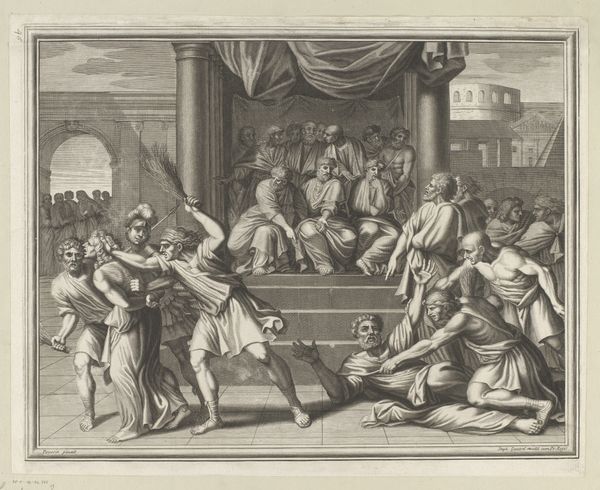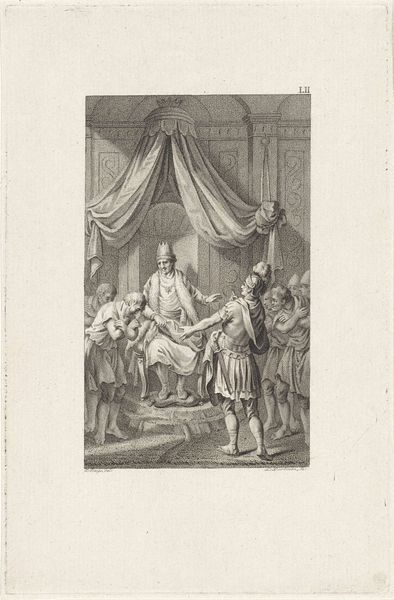
print, engraving
#
narrative-art
#
baroque
# print
#
old engraving style
#
figuration
#
history-painting
#
engraving
Dimensions: height 53 mm, width 97 mm
Copyright: Rijks Museum: Open Domain
Bernard Picart made this etching, "Sermon of a Bishop," sometime around 1700, using metal plates and acid to create this detailed scene. Notice how the stark lines define everything from the bishop's elaborate robes to the worried faces in the crowd. Etching like this was a commercial process, a way to reproduce images for books and prints and disseminate ideas widely. The quality of the line becomes crucial, as it’s the sole means of conveying texture, emotion, and depth. Consider the labor involved: the skilled artisan meticulously transfers the design, etches the plate, and then prints each image. In its time, etching was a cutting-edge method of mass production, making imagery accessible to a broader audience. Looking at this print, we should appreciate not just the image, but also the social context of its making—the skilled labor, the reproducibility, and the democratization of visual culture it represents. It challenges the traditional idea of art as a unique, precious object, inviting us to think about art as a form of communication and a product of its time.
Comments
No comments
Be the first to comment and join the conversation on the ultimate creative platform.
